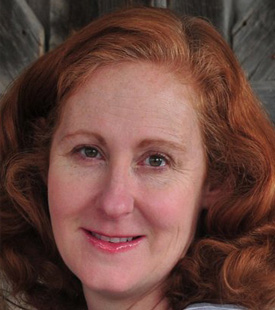 They say there’s an exception to every rule, and in the case of the Secure and Fair Enforcement for Mortgage Licensing Act, or SAFE Act, there are actually two major exceptions to keep in mind. When used properly, these exceptions can be a small institution’s best friend. On the other hand, improper compliance with SAFE Act requirements could turn this regulation into your institution’s compliance enemy.
They say there’s an exception to every rule, and in the case of the Secure and Fair Enforcement for Mortgage Licensing Act, or SAFE Act, there are actually two major exceptions to keep in mind. When used properly, these exceptions can be a small institution’s best friend. On the other hand, improper compliance with SAFE Act requirements could turn this regulation into your institution’s compliance enemy.
Let’s take a look at what those exceptions are and what potential pitfalls they present.
Small Institution Exception
Someone at your institution is responsible for maintaining the registry of mortgage loan officers (MLOs), but the SAFE Act prohibits institutions from using an MLO to perform this function. This can be a problem for some small institutions, where most or even all of the employees participate in mortgage loan origination.
The agencies recognize this dilemma and have provided an exception to this rule for institutions with “10 or fewer full time or equivalent employees.”[1] In this instance, the person who maintains the registry can also be an MLO.
This raises the question of what constitutes the equivalent of a full-time employee. Let’s say you are a little institution with eight full-time employees and four part-time employees. You have several mortgage loan originators on staff. This makes it difficult to have an administrator who is not an MLO, but you are aware of the exception, so you appoint one MLO to serve as your system administrator because section 1007.103 provides an exemption for small institutions that have 10 full-time employees or less. Your SAFE Act program is compliant, right?
Well maybe it is and maybe it isn’t. Unfortunately, the regulation doesn’t provide us any kind of definition of what constitutes a full-time employee. Because examiners are not typically fans of going outside of explicit regulatory guidelines, it is virtually impossible to postulate what they will consider as a full-time employee. In the absence of guidance specific to this regulation, some institutions have looked elsewhere, such as Obamacare, which has a similar exception and offers guidance. Healthcare.gov offers a calculator that indicates employees who work more than 30 hours are considered full-time employees, and then totals the number of hours worked by part-time employees divided by 30 to give the number of additional full-time equivalent employees.
So, in the above scenario, if the four part-time employees each worked 20 hours a week, you’d have 10 or fewer full-time employees. But if those four part-timers worked 25 hours a week, you’d have the equivalent of 11 full-time employees, and would therefore not be eligible for this exception.
However, it is important to remember that this full-time equivalent definition is for Healthcare.gov, not for financial institutions seeking to comply with the SAFE Act, for which there are no precise rules. If you’re near the dividing line at your institution, it would be worthwhile to use your best judgment and build your case.
De Minimis Exception
The regulation offers an exception to any employee of a covered financial institution to the licensing and registration requirements if that person has acted as an MLO for five or fewer residential mortgage loans in a rolling 12-month period. “Rolling” means that it’s not the number of loans originated in a calendar year, but rather the number originated at any time during the last 12 months. And these employees must register before attempting to originate their sixth residential mortgage loan.
Trying to skirt around these requirements is considered a violation of the SAFE Act. You need to explicitly state in your SAFE Act policy whether you intend to use this exemption or not.
So, yes, there are some caveats to applying these exceptions to SAFE Act, but if your institution does qualify, it can certainly make complying with the SAFE Act less of an administrative headache.
[1] https://www.federalregister.gov/articles/2011/12/19/2011-31730/safe-mortgage-licensing-act-regulations-g-and-h
AffirmX can help your institution comply with the SAFE Act, including its exemptions. For information about an audit of your SAFE Act policy, contact Alberto Gamez at alberto.gamez@affirmx.com.
 Coppelia Padgett is senior analyst and resident SAFE Act expert for AffirmX. She began her career as a compliance examiner for the FDIC working primarily out of Los Angeles. She left the FDIC to found Triac in 1992. This consulting firm grew to serve the compliance needs of hundreds of financial institutions in the Los Angeles metropolitan area and around the United States. In 2011, Ms. Padgett joined AffirmX as a researcher, senior analyst, and writer. She graduated magna cum laude from the University of Tulsa with a degree in Economics.
Coppelia Padgett is senior analyst and resident SAFE Act expert for AffirmX. She began her career as a compliance examiner for the FDIC working primarily out of Los Angeles. She left the FDIC to found Triac in 1992. This consulting firm grew to serve the compliance needs of hundreds of financial institutions in the Los Angeles metropolitan area and around the United States. In 2011, Ms. Padgett joined AffirmX as a researcher, senior analyst, and writer. She graduated magna cum laude from the University of Tulsa with a degree in Economics.




